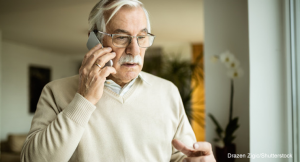It is March 13, 2020 and I am sad, annoyed, a bit scared and unsure of what lies ahead. Having cancelled a work trip to Seattle and spring break vacation plans has given me plenty of time to sit in my office and reflect on the events of the past month. Some are calling this week an inflection point in American history, the week in which the reality of the COVID-19 pandemic hit home for nearly all of us.
Explore This Issue
April 2020This past week nearly every state has announced a case, travel restrictions were enacted at work, the President announced a travel ban from Europe, college and professional sporting competitions were cancelled, and states began closing schools. Life as we know it has stopped.
How did we get to this point? Did we not take this seriously enough? Was our hubris as Americans so great that we thought we would be immune to the infections that affected other nations? As a society, have we become too self-centered, where devotion to the health of the stock market has placed financial well-being above the personal health of the greater community? How did we forget that our own individual actions could have massive downstream effects on our neighbors and colleagues? There are so many questions to ask and they all are entangled with political, cultural, societal, and economic influences. As physicians, many of those issuses lie outside our sphere of control. But, looking back, there is at least one thing we could have done better.

Drazen Zigic/Shutterstock
One of the lessons we can take from this is that we, the scientific community, and our government didn’t communicate the science to the public in a lay person’s language. Talking to our patients in a language they can understand is fundamental to our job. For many months, the novel coronavirus was spreading in Asia, Italy, and Iran, yet large parts of the American public thought it was no different than the common flu. Two days ago, a young patient of mine and his father asked me why I didn’t shake their hands like I normally do. They were surprised to hear my response about social distancing as they thought the coronavirus situation was overblown by the media and would go away when the weather got warm.
As I was driving my kids to school yesterday, my nine-year-old asked why people are panicking over the coronavirus. Hasn’t the coronavirus been around a long time? What is so special about this one? I responded that this is a novel cornonavirus and because it is brand new, we are unsure of its time course, how it will react to the weather and what drugs will work. I explained that coronavirus is a family of organisms, much like he and his 12-year-old brother are family. But just because he and his brother are related, it doesn’t mean that we expect that he will act and develop in the same way. And when I asked his older brother what the word novel meant, he replied, “A book.” I suspect my two kids were not alone and there were likely plenty of adults who may have thought the same way. Would people have taken this more seriously if we called it a “new” coronavirus as opposed to “novel”?
The take-away lesson here is that words and how we communicate them do matter. And their effects are dire when we are faced with a medical crisis. It is my belief that if we better communicated how new this virus is, how uncertain we are on how it acts, how important it is to avoid going into public spaces, such as nursing homes, when we are sick, that lives could have been saved and spread diminished. Perhaps every time we saw a patient, we could have taken a couple of minutes to talk to them about what the coronavirus is and how important it is to practice good hand hygiene and think of the community before the individual to help prevent the spread.
My best wishes to you and your families, that you stay safe and healthy. I hope this will pass soon. Until then, let’s please do our best to treat our patients with compassion and set a good example of what it means to be a responsible member of a community. We are more than just a collection of individuals. Together we will overcome.
—Alex